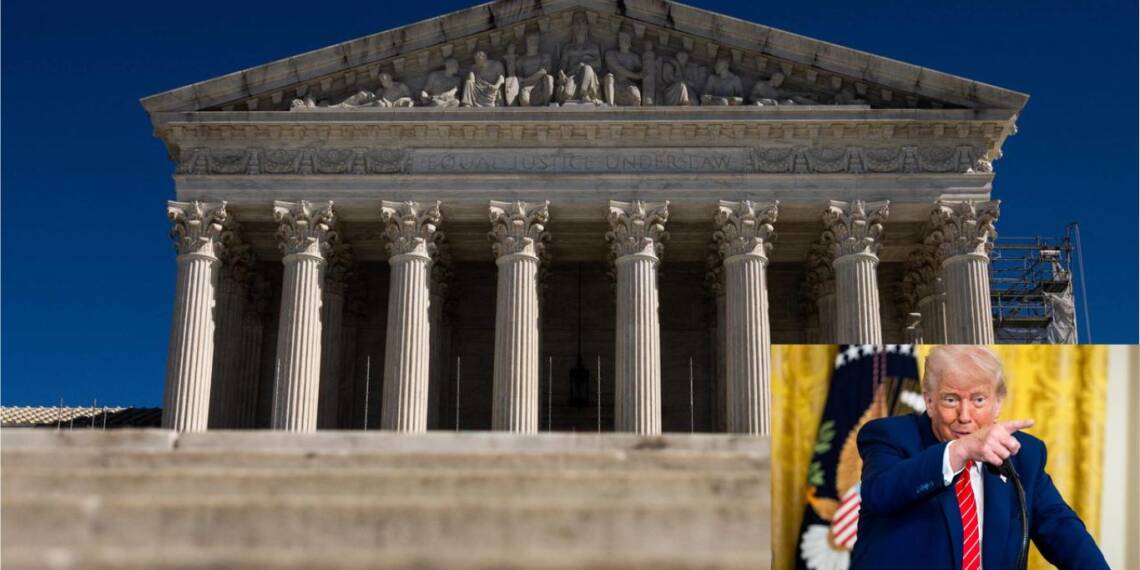The U.S. Supreme Court has allowed the Trump administration to move forward with a contentious plan to cancel special legal protections for nearly 350,000 Venezuelan immigrants. These immigrants had been granted Temporary Protected Status (TPS) during President Joe Biden’s term because of the political crisis and humanitarian issues in Venezuela.
TPS is a federal program that gives immigrants from certain countries temporary legal status and work authorization if their home countries are facing war, natural disasters, or other serious problems. The program was introduced in 1990, and it allows people to live and work in the U.S. for a limited period — usually 18 months — with the possibility of extensions.
In March 2021, the Biden administration added Venezuela to the TPS list due to worsening conditions there. This allowed Venezuelans already in the U.S. to stay legally and get work permits. The TPS for Venezuelans was renewed in October 2023 and again in January 2024, just before former President Donald Trump returned to office.
But in February 2025, the new Secretary of Homeland Security, Kristi Noem, tried to cancel those extensions. That would mean the protections would now expire by the end of 2025 instead of continuing until October 2026. If the protections end, thousands of Venezuelans could face deportation unless they find another legal way to remain, like applying for asylum.
A California federal judge, Edward Chen, had earlier blocked the move, saying there was evidence that the decision to cancel TPS may have been influenced by racial bias. He warned that many Venezuelan immigrants could face “imminent deportation” if the protections were removed.
Despite that, the Supreme Court granted the Trump administration’s emergency request to let the cancellation move ahead. The court gave only a brief explanation and noted that Justice Ketanji Brown Jackson disagreed with the decision.
A Deeply Divisive Decision
The legal and political reactions to the Supreme Court’s decision have been sharply divided. Ahilan Arulanantham, a lawyer representing some of the Venezuelan immigrants, called the ruling “truly shocking” and said it marked the largest group of immigrants to lose legal status in modern U.S. history. He criticized the court for acting without giving the case proper consideration.
On the other hand, Homeland Security Assistant Secretary Tricia McLaughlin praised the decision. She said it was a win for public safety and that the Trump administration was “restoring integrity” to the immigration system.
The Trump administration’s legal team, led by Solicitor General D. John Sauer, argued that the courts should not interfere in decisions about immigration made by the executive branch. He claimed that allowing the lower court to block the cancellation would delay important policy decisions that require flexibility and speed.
Meanwhile, immigrant rights groups such as the National TPS Alliance, along with individual Venezuelans, have vowed to continue fighting in court. Their lawyers argue that the administration is trying to avoid legal accountability and that the end of TPS would result in job losses and mass deportations to unsafe conditions in Venezuela.
Interestingly, just days before this decision, the Supreme Court ruled against the Trump administration in another immigration case. That case involved Venezuelan immigrants held in detention, and the court said they must be given a fair chance to challenge their deportation under an old wartime law called the Alien Enemies Act.
The legal battle over TPS for Venezuelans is still ongoing. Although the Supreme Court’s recent decision allows the Trump administration to move forward with its plan for now, the issue will continue to be debated in lower courts. There may still be opportunities for some immigrants to challenge the policy or seek legal relief.








